Engaging young minds can often feel like a complex puzzle, especially when the subject is as vast and intricate as the English language. But what if the key to unlocking this challenge lies in playful learning? In this article, let’s discover a treasure trove of English language games designed for middle school students. These games make English lessons more enjoyable and reinforce linguistic concepts in a memorable way.
How Games Can Help Students Learn English
Educators worldwide are beginning to appreciate the value of classroom games in teaching. Regarding language learning, especially English, games provide a unique combination of fun and real-world application that conventional classroom techniques may lack.
Games have an intrinsic enjoyment element, making the learning process more engaging. English language games assist middle school students in understanding context and use. Middle schoolers may experience different activities, requiring them to adapt and utilize English in various settings.
Improves Memory & Retention
Fun English language games help middle school students improve their reading skills, memory, and retention of new words. Educational games encourage active participation in the learning process, guaranteeing that students are more likely to remember the correct order of material when engaged and interested.
The reward system, whether via points, levels, or other kinds, is one of the distinguishing aspects of many games. This technique boosts motivation, encouraging students to work more, which may improve retention.
Avoids Rote Learning and Boredom
Games provide a unique learning strategy that differs from standard rote memory methods, often leading to student boredom. Instead of passively collecting material, students in a game-based context are often placed in circumstances where they must use their critical thinking skills to make choices or solve issues.
Traditional classroom settings might fall short of meeting every student’s different demands, especially when teaching parts of speech or introducing new vocabulary words. Games, on the other hand, often include adaptive algorithms, enabling students to grow at their speed and in ways that correspond to their unique learning styles.
Encourages Group Participation and Communication
Games, particularly those created for group settings, naturally foster cooperation by forcing students to collaborate and use the abilities of each participant to succeed. Many group-oriented games concentrate on goals that cannot be completed by a single player alone, highlighting the need for collaborative strategy.
English language arts games, for example, incorporate various English teaching activities, further enhancing collaboration. As students work together in ELA games, they naturally refine their delegation, leadership, and consensus-building abilities, which are critical for group success.
60 English Language Games
We’ll look at many types of English language games, including online games from different categories, that may help your students enhance their vocabulary, verbal communication, spelling, reading comprehension, and grammar.
Among these games – the interactive language arts games stand out as particularly engaging. These activities intend to make learning more enjoyable and engaging by giving chances for practice and reinforcement of essential language ideas.
Vocabulary Games
Vocabulary games are an excellent approach for kids to strengthen their word association abilities, expand their vocabulary list, and increase their general language ability. Vocabulary tests help students check their understanding of difficult words, unique words, and the correct definition of terms.
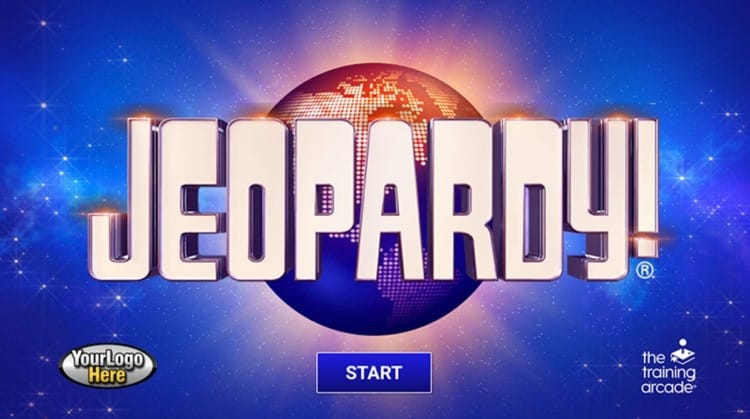
#1 Jeopardy
Another famous game that helps kids acquire confidence is Jeopardy. You’ll set it up similarly to the TV program, with a large board with answers and points.
#2 How’s Yours?
Using the phrase “How’s yours?”, students must identify the item everyone refers to. The student will identify the object by addressing each participant individually with the question, “How’s yours?”
#3 Board Race
Whether the words are from the lesson you just taught or from one you taught last week, Board Race is a great game to practice vocabulary. Play this at the beginning of class to get students pumping.
#4 Pictionary
This game works well with any age group. Kids enjoy it because it allows them to be creative in the classroom. This helps them improve their vocabulary and test their recall of vocabulary terms.
#5 Knoword
Knoword has to be one of the most enjoyable games available on the internet. The instructions are simple. You have 1-2 minutes to read as many definitions as possible and write the proper response.
This game is fast-paced, yet promotes peer learning since children will pick up on terms they hear others say. To play, one student will yell a theme-related term. The winner is the last man standing.
Verbal Communication Games
Verbal communication is critical in language acquisition because it lets us properly convey our thoughts and ideas. Students may improve their communication skills and ability to hear spoken English by engaging in these activities that build confidence and promote active engagement.
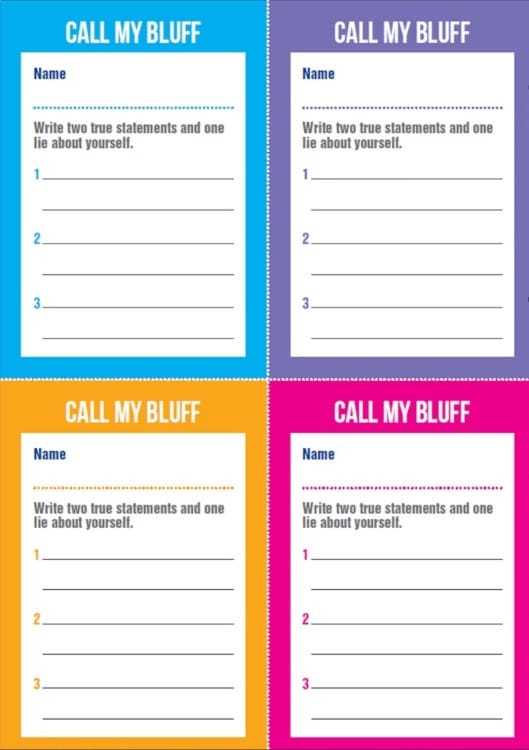
#7 Call My Bluff
Call My Bluff is ideal as a warm up activity at the beginning of the class. To play, write three things about yourself on the board, with two being lies and one being true. Those who guess the truth is the winner.
#8 Hot Seat
Hot Seat helps students to expand their vocabulary while also encouraging classroom rivalry. They may also practice their speaking and listening abilities, and it is appropriate for all levels of learners.
Put an item in a bag and provide hints to help your students figure out what it is. For instance, if you’re hiding a spoon, you may say, “It’s small.” “It’s silver.” Allow them to choose an item to hide after.
#10 Find Someone Who
This quiz game is a speaking activity in which learners attempt to locate someone in the group who meets a description. For example, “Find someone who is late” or “Find someone thin.”
#11 Chain Link Story
This game promotes creativity and fast thinking. Begin the story with something like, “Once upon a time, there was a baby dinosaur…” Then, give the ball to someone and ask them to continue the narrative.
#12 Charades
Charade is an excellent game to educate kids on nonverbal communication skills. Put the secret word or phrase in a bowl. Each participant must choose a paper and act out what it says without saying anything.
#13 Ten Questions
To play, someone must think of any category but keep it private. The other participants have ten questions to ask to figure out, and guess what it is!
Spelling Activities
Spelling is an important skill in English, and what better way to learn it than with interactive exercises and word puzzles? Middle schoolers may improve their spelling skills while having fun with free word games or competing in a vibrant spelling bee. And who doesn’t like the thrill of a spelling bee?
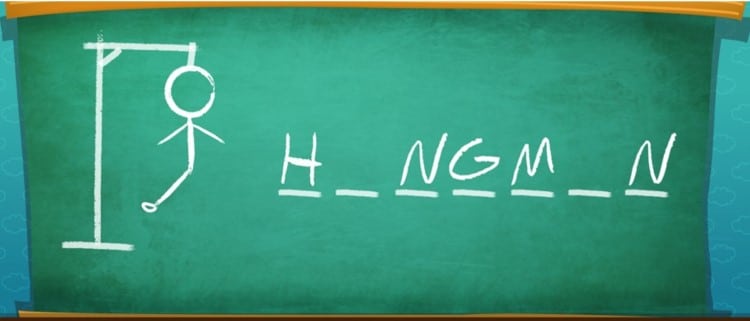
#14 Hangman
The game Hangman is an oldie but a goodie. Before the Hangman’s picture is finished, students must guess the number of letters to figure out a word or phrase. Allow kids to take turns selecting the word.
#15 Word Jumble Race
This game creates a feeling of competitiveness in the classroom, and it also appeals to people of all ages. It is ideal for honing your tenses, word order, reading and writing abilities, and grammar.
#16 Spelling Sparkle
You begin this game by uttering a spelling word, such as “exploration.” The first student must speak the first letter, the second, the next, and so on. If a student says the wrong letter, they must sit down.
#17 Backdraw
Arrange the students in a row facing the chalkboard. Give a word to the last student in each team (the one farthest away from the board). The team that spells the word correctly first is the winner.
#18 Wordshake
This game provides you with 16 random alphabet letters. In three minutes, you must generate (think up) as many English words as possible using the letters you have.
#19 Spelling Relay
Form groups of students and have them line up on the whiteboard. Instruct them to spell words using just one letter before giving the marker to their buddy. The team that writes the word properly first wins.
You’ll need at least one person for each letter of the word you’re trying to spell. Ask kids to spell each word with their body. A student, for example, may form the letter “l” by standing up straight.
Reading Comprehension Games
Reading comprehension and apprehension are essential language arts skills for students to learn since it helps them to go deeper into texts and extract meaning from the written word. A fun reading game improves language fluency by exposing students to various writing styles and genres.
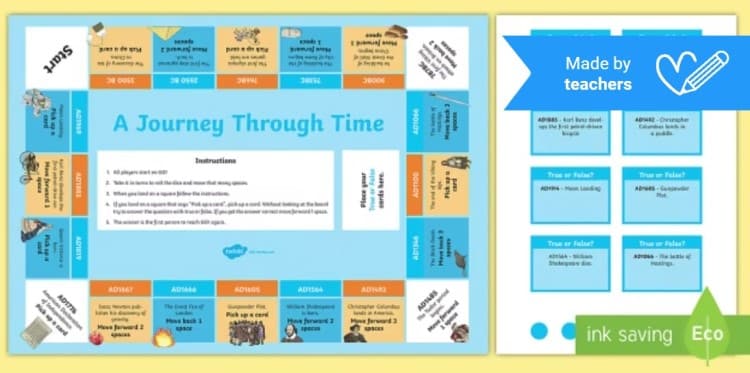
#21 Timeline
This game may be done after reading a story or narrative. Make a timeline on the board – you may write the dates/days. Students must build the chronology of the tale as a group, and the first one to do it wins.
#22 Word Bingo
To play this game, choose 16 words from the text and find synonyms. Write them on the board and fill in Bingo card blanks. The kids then search and tick down the word’s synonym on their Bingo cards.
The students must separate the content into tiny paragraphs. Then, write the summary of each paragraph on a strip of paper and cut it out. Have the students rearrange the words to form a statement.
#24 Roll and Recall
Make 6 questions on the text that the students will read. Assign a number to each question. After reading, have a pupil roll the dice. Match the question to the number on which the dice falls. The student will respond to the question.
#25 Prediction Game
Divide the material you’ll read in class into three or four sections. Then, read the first section of the text. After that, solicit predictions. A point is awarded for guesses that are close to what is stated in the text.
#26 Treasure Hunting
To play this game, hide various prizes (cards, balls) in the classroom. Write a brief story with hints to where each treasure may be found. Divide the kids into groups and provide them with a map.
Grammar Games
Various online grammar games and engaging worksheets are available to make grammar study enjoyable and engaging for middle school students. These materials allow students to practice grammar concept in a fun environment.
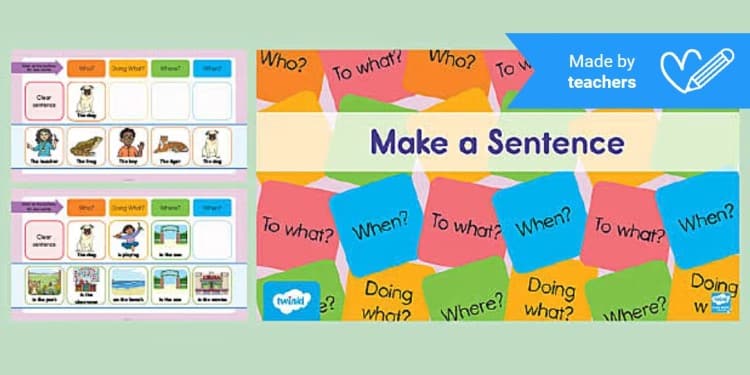
#27 Make A Sentence
Students will get a plastic bag with color-coded game cards. They will next choose a subject, object, verb, and punctuation mark to form a sentence. The player takes their turn after recording their sentence. Goal: generate as many sentences as possible.
#28 Hopscotch
Draw a hopscotch frame on the playground. Instead of numbers, mark the squares with nouns, pronouns, verbs, adverbs, etc. Students will jump to a square and if the marker hits on a verb, they may say “run or dance.”
Give each student a sheet of color stickers. Make a period out of the yellow stickers, a question mark on the green, etc. Then, tell them to write a sentence and have them put the appropriate sticker at the end.
#30 CAPital Letters
You will need a storybook and some paper caps for this exercise. To start, read the story aloud. The players should put their hats on their heads whenever they hear a word that requires a capital letter.
#31 Homograph Game
This fun sketching project helps students grasp homophones. Call out a word, such as “trunk,” and have students draw two distinct visuals corresponding to that word.
On a piece of paper, jot out one or two paragraphs. Try composing something the kids will like reading or find hilarious. Include a single spelling or grammatical error per two or three phrases as you write.
#33 Present and Past Tense Matching Game
This game is fun to strengthen your child’s learning of present and past verb tenses. Write the past and present verb tenses of various words on index cards, one word on each, for matching.
Writing Activities
Writing allows students to express their ideas and feelings while refining their communication skills and exploring the power of words. Engaging in these many types of writing activities improves your ability to communicate effectively. These fun language arts games are good writing practice for middle schoolers.
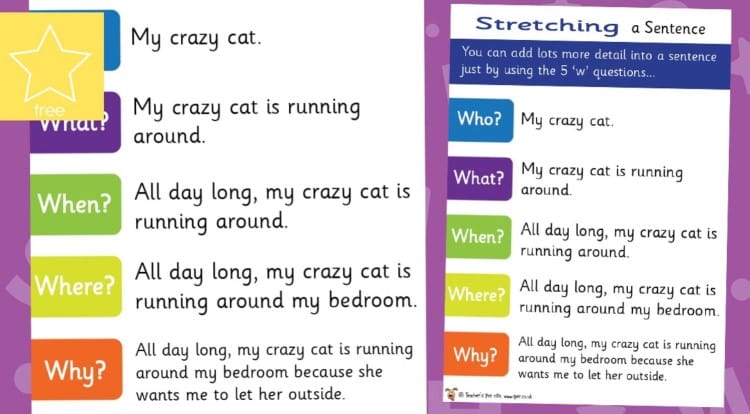
Begin with a brief statement or word combination. Pass it to 6 people, stipulating that each person must write or add (word/phrase) or modify ONE WORD to make the statement more specific and engaging.
#35 Toss and Write
This game requires printing grammatical knowledge on each cube face. Create a statement for 1, a question for 2, etc. Students throw the cube, and the task depends on which side is up.
#36 Exquisite Corpse
This game encourages creative and collaborative writing. Students sit in a circle and fold the paper in thirds to reveal the top third to play. On top of their page, students must write a statement or phrase.
#37 Story Starters
Story starters inspire creative writing in middle schoolers. Give children a sentence or phrase to start a tale. Students must compose a tale starting with that statement or phrase.
A writing scavenger hunt is a fun and active way to get students to write. To do this, hide different writing prompts around the classroom. Students must then find the writing prompts and complete them.
#39 Stop The Bus
The instructor writes “start the bus” to start this game. Students then brainstorm as many words starting with this letter as possible. When a child shouts “Stop the bus,” everyone must stop writing.
#40 Story Pass
As a writing prompt, post a picture or a first line. Divide students and ask them to write a story based on the prompt. Each student writes one phrase to contribute to the story and then passes it on to the next.
Pronunciation Exercises
Pronunciation exercises are necessary for efficient communication in English. These exercises are a fun word game to exercise your tongue muscles and enhance your speaking clarity. Incorporating these games in the classroom will not only improve pronunciation but also speaking confidence.
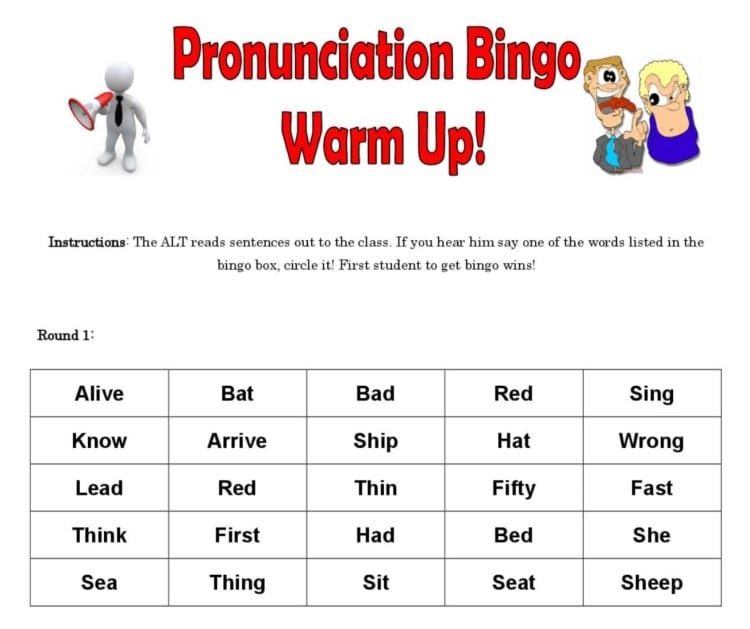
Pronunciation bingo is a fun and interactive way to practice pronouncing specific sounds. To play, create game cards with different sounds. Have students listen to a recording of someone speaking English and mark off the sounds they hear on their bingo board.
In this game, each student will create a new word using the final letter of the preceding one. You’re out if the timer runs off! It may be played with any size group; all you need is a timer.
#43 Pronunciation Scavenger Hunt
This game makes practicing pronunciation enjoyable and active. Hide words or phrases around the classroom to play. Students then collaborate to discover and pronounce all words and phrases.
In this game, players act out words for their teammates to guess, focusing on pronouncing the words. For example, players might act out the word “ship” by waving their arms like a boat and making a “sh” sound.
If you want to educate your kids about stress and intonation, try this game. You deliver a statement in a natural or unnatural rhythm, and your pupils must judge whether you stated it correctly or incorrectly.
In this game, create 100 cells on a table and fill them with words with the pronunciation sound you wish to practice. Fill the remaining cells with words without this sound and ask students to connect them—the first student to finish the maze wins.
#47 Read My Lips
To play this game, say a word silently. Students should attempt to guess the word or phrase you or another student is pronouncing quietly.
Phonics Games
Phonics games teach reading and writing by developing students’ phonemic awareness. This means recognizing the connection between spoken language’s individual sounds and the letters that represent those sounds in written language. These phonics games can provide several benefits for students.
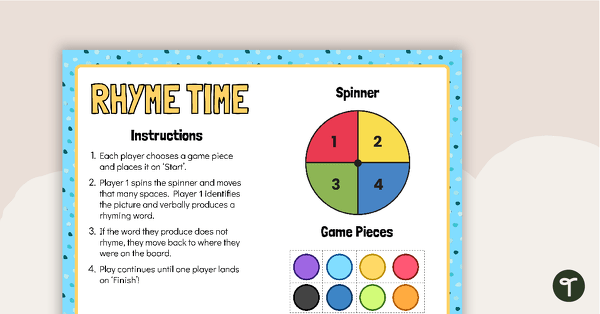
#48 Rhyme Time
Players take turns saying words that rhyme with a given word. One player chooses a word and says, “I challenge you to think of as many rhymes as you can for [word].” The player with the most rhymes wins.
#49 Pogo Drill
Along the board or letter card, place 6 flashcards or write letters/clusters. Form a line of students before one of the flashcards. When a teacher or student makes a sound, the whole line jumps to that spot.
#50 Word Family
Word families are groups of words that have the same sound ending. For example, the word family -at includes the words cat and bat. This game requires players to compose as many words as possible from a word family.
#51 Phonics Boxes
Make a paper or board grid. A letter on either side of each square creates a grid of dots. Students take turns interpreting a sound or mix and sketching a grid line. Students may draw one extra line after finishing a box.
#52 Fruit Salad
In this game, make sure each child uses their phonics flashcard twice. One student calls the sound and both students with matching flashcards must swiftly up and transfer seats.
Display a word to start this game. The first student to correctly pronounce the words first (or final) sound may sit down and choose whether their row can sit horizontally or vertically.
Listening Comprehension Activities
Students may improve their listening comprehension and boost their ability to grasp spoken language by participating in entertaining activities. There are many comprehension games that can assist students in improving their listening abilities.
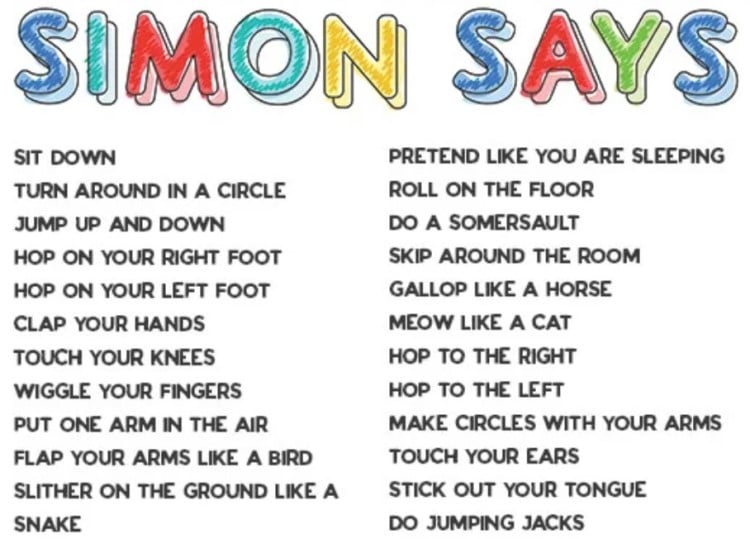
#54 Simon Says
Pick a student to be “Simon.” The students then congregate around Simon, who says, “Simon says…” and orders them to move. Examples: “Simon says touch your nose,” “Simon says shake like a leaf.”
Another timeless masterpiece is Telephone. Down the line, students will whisper a specific phrase. The final person will reveal the probably complicated phrase to the class for everyone’s pleasure.
#56 Song Puzzle
Song Puzzle is a fun ESL classroom game with your students singing along to their favorite songs. You’ll play a song while they organize the words correctly.
#57 Listen and Do
To play Listen and Do, give students a set of instructions to follow. For example, you could tell students to stand up and sit down again. After you have given all of the instructions, have students follow them.
#58 Listening Bingo
Create a bingo board with words or phrases for Listening Bingo. A board may read “Stand up,” or “sit down.” Students must then mark their bingo board with heard words.
Hide things around the classroom to play this game. Your verbal directions need students to work together to discover all things. You may say, “Find something red” or “Find something soft.”
#60 Hot or Cold
To play Hot or Cold, hide a small object and use verbal clues to assist students in locating the object. Tell them they’re growing hotter as they approach closer to the thing and cooler as they get distant.
Keep Learning!
Here at Nerd’s Magazine, we want everyone to love learning! If you want to learn more about how combining games with learning can help anyone learn at any age, read these articles:
- Helping Your Child With STEM Subjects Using Science Games
- 10 Best Brain Teasers And Puzzle Games For Adults
- Top 10 ESL Games For Adult Learners

Kiezela Quiz once whizzed through clouds as a flight attendant, but her love for books and penning down thoughts lured her back to solid ground. Now, she is a full-time writer, and every week she dishes out articles on education, gaming, and pretty much anything that sparkles under the sun.









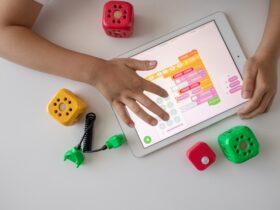




Leave a Reply